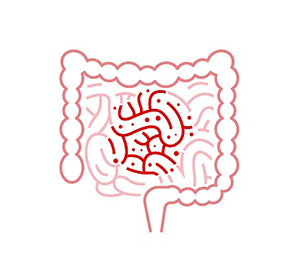In a meta-analysis of population-based studies reported in JAMA Network Open, Elmahdi et al found that although the reported incidence of cancers in individuals with pediatric-onset inflammatory bowel disease (IBD) is low, the condition is associated with a significantly increased risk of cancers compared with general pediatric populations.
As stated by the investigators, “Because the incidence of pediatric-onset IBD is increasing, knowledge of the long-term risk of cancer in this patient population is required.”
Study Details
The analysis included five population-based cohort studies of pediatric-onset IBD from Europe and North America that assessed risk of cancer, including 19,812 individuals with pediatric-onset IBD and 3,056,282 reference individuals without IBD. Pooled relative rates of cancers with IBD overall and by subtypes of Crohn's disease and ulcerative colitis were calculated for combined studies.

Photo credit: Getty
Key Findings
The incidence rates of cancer among patients with pediatric-onset IBD ranged from 1.0 to 3.3 cases/1,000 person-years across studies.
Cancer developed in 715 of 19,812 patients with IBD (over follow-up of 283,540 person-years) and in 11,195 of 3,056,282 individuals in the reference group. Estimated pooled relative rates for the IBD group were 2.46 (95% confidence interval [CI] = 2.06–2.93) overall, 2.03 (95% CI = 1.67–2.46) among those with Crohn's disease, and 2.61 (95% CI = 2.00–3.40) among those with ulcerative colitis.
The increased rate was primarily due to increased risks of liver cancer (pooled relative rate [pRR] = 55.45, 95% CI = 19.59–156.99), colorectal cancer (pRR = 20.29, 95% CI = 15.90–25.90), and small bowel cancer (pRR = 16.20, 95% CI = 3.52–74.66).
A significant increase in risk was observed among male patients (pRR = 3.23, 95% CI = 2.35–4.45) and a nonsignificant increase was observed among female patients (pRR = 2.45, 95% CI = 0.93–6.46). Patients exposed to thiopurines had significantly increased risk (pRR = 2.09, 95% CI = 1.55–2.83), with a nonsignificant increase observed among those without exposure (pRR = 1.82, 95% CI = 0.63–5.22).
The investigators concluded, “This meta-analysis of unselected, population-based studies showed a greater than two-fold increased rate of cancer among patients with pediatric-onset IBD compared with the general pediatric populations, primarily owing to an increased rate of gastrointestinal cancers.”
Tine Jess, MD, DMSci, of the Center for Molecular Prediction of Inflammatory Bowel Disease, Aalborg University, Copenhagen, is the corresponding author for the JAMA Network Open article.
Disclosure: The study was supported by a grant from the Danish National Research Foundation. For full disclosures of the study authors, visit jamanetwork.com.

